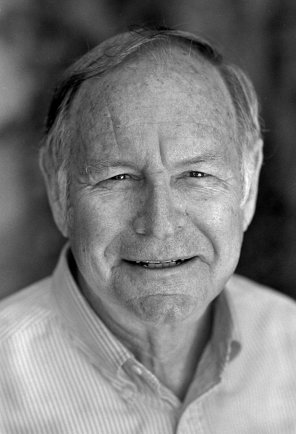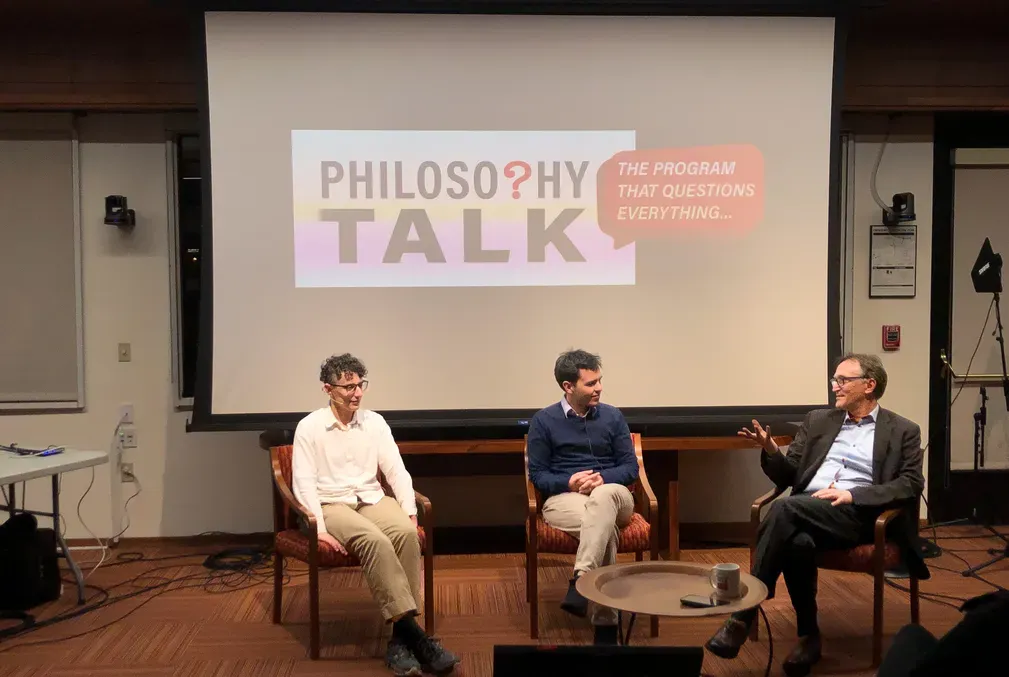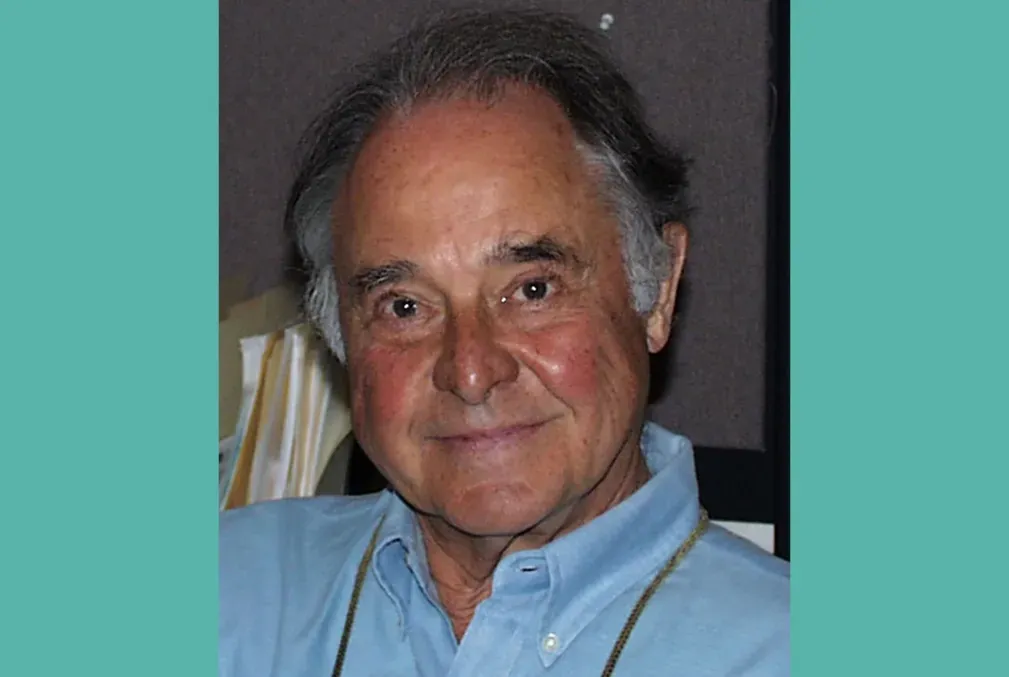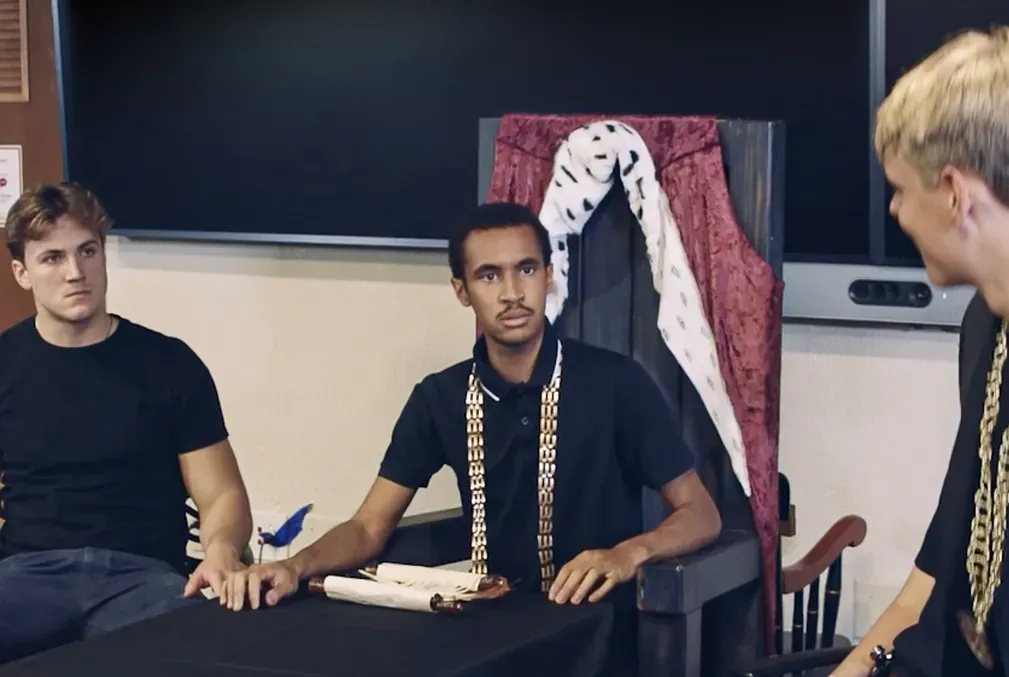Stanford professor of religious studies Van A. Harvey has died
Van A. Harvey, a leading scholar of religious thought who helped shape the Department of Religious Studies at Stanford, has died.
Van A. Harvey, the George Edwin Burnell Professor of Religious Studies, Emeritus, and a dedicated leader and builder of the department, died in his Palo Alto home on July 11. He was 95.
Harvey joined Stanford’s School of Humanities and Sciences in 1978 as a widely recognized authority on the key critics and reformers of religion in European modernity. His research explored the tension between historical inquiry and faith as well as the emergence of secular interpretations of religion in 19th and 20th centuries.
Coming to Stanford four years after the founding of the religious studies department and appointed chair two years later, Harvey played a pivotal role in shaping the department’s trajectory. Along with colleagues William Clebsch and Lee Yearley, Harvey transformed what was once a little-known track within “Humanities Special Programs” into the non-sectarian, interdisciplinary, globally oriented department it is today.
A renowned scholar and devoted teacher
In addition to numerous essays, scholarly articles, and book reviews, Harvey authored three books, beginning with A Handbook of Theological Terms (Simon and Schuster Inc., 1964). His second book, The Historian and the Believer (Macmillian Company, 1966) solidified his reputation as a researcher who deeply investigated the relationship between Christian belief and the “morality of knowledge” presupposed by historical research into Christian origins.
Harvey’s last major book, which explored one of the most influential critics of religion in the 19th century, was entitled Ludwig Feuerbach and the Interpretation of Religion (Cambridge University Press, 1995) and won the American Academy of Religion Award for Excellence in 1996.
He received many other honors for his research and teaching, including two John Guggenheim Fellowships, a National Endowment for the Humanities Fellowship, a Visiting Fellowship from Clare Hall at Cambridge University, a senior fellowship from the Stanford Humanities Center, and the School of Humanities and Sciences Dean’s Award for Distinguished Teaching.
“Van was a superlative teacher and graduate advisor whom I have tried to emulate as a professor in my own classes,” said Karen Carr, who received her doctorate in religious studies from Stanford in 1989 and is now professor and chair of religious studies at Lawrence University. “I will forever be grateful to Van for demonstrating, in word and deed, why the life of the mind is worth pursuing and providing a model of academic excellence worthy of emulating.”
Harvey was recognized for his inspiring teaching not only by undergraduate and doctoral students but also by colleagues across the university. When Irvin Yalom, professor of psychiatry and behavioral sciences, Emeritus, came to teach at Stanford, he said he sought out the liberal arts and philosophy education lacking in his previous training and decided to enroll in Harvey's course on Friedrich Nietzsche.
“From the very first meeting I was transfixed by his unforgettable lectures,” Yalom said. “Soon afterward I attended his course on Søren Kierkegaard and was equally amazed by Van Harvey's depth, clarity and obvious careful preparation. By far these two courses were the best college courses I've ever attended, and I was fortunate to have had a long and lively friendship with Van Harvey until his death.”
Shaping Stanford’s religious studies department
Over the years, Harvey’s scholarly work galvanized his firm conviction that university departments of religion needed to make a clean break with the goals and curricula of East Coast divinity schools. A strong supporter of a broad liberal arts education, Harvey was a leader in the institutionalization of the secular study of religion.
In addition to helping build a first-rate graduate program, Harvey also made efforts to broaden the department’s offerings, laying the foundation for Stanford’s interdisciplinary program in Jewish Studies and its future strength in the study of Buddhism.
“Van was my most important teacher as an undergraduate at Penn and my inspiration for becoming a professor of religious studies. He became my colleague when he played a key role in establishing a Jewish Studies program at Stanford in 1986 and recruiting me to help lead it,” said Arnold Eisen, the Daniel E. Koshland Professor in Jewish Culture and Religion, Emeritus at Stanford.
“He was brilliant, clear-headed, blessed with great common sense, and a devoted teacher,” said Eisen. “Despite being agnostic in belief, I think he was one of the most religious people I have ever known because he lived and breathed concern with the truth or falsity of faith.”
From naval ship library to the academy
Van Harvey was born in Hankou, China to parents serving as Christian missionaries. His family returned to the United States when he was a toddler and settled in California. After high school, he volunteered for the Naval V-12 College Training Program. He was commissioned as an ensign in the United States Naval Reserve and served on a destroyer in the last months of World War II.
This experience paved the way for his future work in religious studies. It was in the ship’s library that Harvey started reading Sigmund Freud and Baruch Spinoza. He also met a sailor who encouraged him to study metaphysics in college and requested college catalogues for Harvey by mail so he could enroll after the war.
After being discharged, Van Harvey entered Occidental College, where he met his wife, Margaret Lynn and graduated with a bachelor’s in philosophy in 1948. He then attended Yale University, where he received his doctorate in modern Western religious thought (1957) after completing a divinity degree (1951). Before joining Stanford, he taught at Princeton University, Southern Methodist University, and the University of Pennsylvania.
“Van Harvey was a person with exceptional integrity,” said James Sheehan, the Dickason Professor in the Humanities, Emeritus. “As a scholar, teacher, and colleague he personified those qualities of mind and character on which the university depends.”
Van Harvey is survived by his wife Margaret, and his sons, Jonathan Lynn Harvey and Christopher Earle Harvey.
Listen to Van Harvey’s oral history as recorded by the Stanford Historical Society and read the tribute written by Stanford religious studies professor Brent Sockness.





